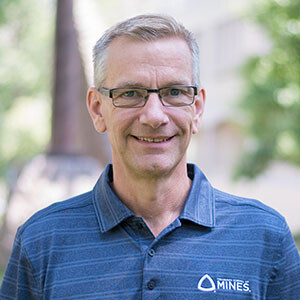Featured Speaker: Dr. John H. Bradford
Dr. John H. Bradford
Vice Provost for Global Initiatives, Dean of Earth Resource and Environmental Programs, Professor of Geophysics, Colorado School of Mines
Hosted via Zoom:
Bookmark this event page. The day of the meeting, please click on “Join a Meeting,” above, once the webinar start time is within 5 minutes. The link will automatically direct you to the virtual session. Upon joining, please adjust* your username to reflect your first and last name.
Abstract:
The earth passed a count of 7 billion people in 2011, and by most estimates, we are on course to reach more than 9 billion by the year 2050. This large population puts an enormous strain on the earth’s resources resulting in a cascade of problems that society must seek to manage. Many of these are in the energy sector – establishing a sustainable energy economy; managing CO2 emissions; supplying the minerals required to sustain a technologically driven society, and meeting these demands while ensuring access to clean fresh water. Solving these integrated, complex problems will require new ways of thinking that go beyond disciplinary bounds. A global transformation is underway, and our higher education systems must adapt to prepare 21st-century leaders and remain relevant.
Key Take-Aways:
- Hydrocarbons will be a significant portion of our energy system for decades but must achieve a net-zero carbon emission energy system as soon as possible
- Dramatic increases in minerals production are essential to all energy mix projections
- Our energy, minerals, and water supplies are inextricably linked
- To solve these problems effectively, science and engineering education must adapt to emphasize systems thinking
*Adjusting your username in Zoom:






